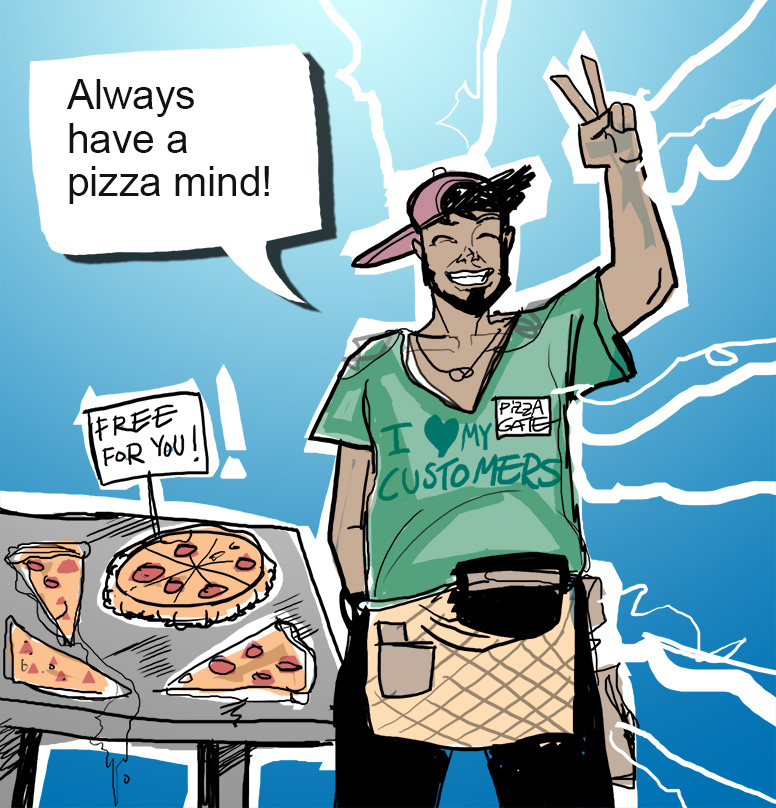
By Mars Dorian, {grow} Contributing Columnist
Sometimes the best online marketing advice comes from the offline world. You know, that strange, physical realm inhabited by carbon-based lifeforms that occasionally look up from their square-shaped magic boxes.
In this post, I want to reveal the top three relationship lessons I’ve learned from my three favorite local businesses. The interactions have changed the way I conduct my online business, and I hope they inspire you to do the same.
1) Even if your service is banal, you can make it meaningful
I’m in love with the ‘Späti’ around my corner. It’s a family-run, kiosk-like shop that’s open 24 hours. In case you don’t know, Späti is German slang for ‘Late.’ These little shops are popular, especially in cities. They make a killing during the midnight hours when supermarkets are closed but party goers still need their salty and sugar fixes. The relationship with my Späti goes deeper than that.
I once lost my keys to my flat and studio space. Don’t judge me, I was pulling an all-nighter. For two hours, I was desperately searching for the keys around the main street when the mother of the Späti found me and returned them back to me.
One day, I’ve left my Vietnamese takeaway food near the fridge section. I walked home without realizing it. The son of the shop owner knew my studio place and delivered the food back to me 10 minutes later, adding “No delivery fee charged” with a smile.
Sometimes, when the nearby banks are closed, I don’t even need to pay for the beverages right away. The family trusts in my promise to repay them later on (most smaller shops don’t offer credit card payment. Germany is a cash land.)
In short, I’ve got a history of trust with the Späti and its family. This experience has turned a petty daily action (buying non-alcoholic beverages) into a meaningful social ritual. This weekly encounter reminded me that no matter how banal the service or product one offers, you can still make the exchange meaningful if you infuse the ‘human factor.’
2) No more minimum viable service
Two Turkish guys run a small, hipster-ish pizza parlor in the street where I rent my small studio. They’re chatty guys with great humor, and they have a voracious (pardon the pun) interest for their customers. By the fifth time I visited their parlor, we had exchanged names and personal stories.
They’re energetic folks, and they often stroll down my street and chat me up. They also offer me price reductions or give me extra big slices with extra spinach for free. Needless to say, after over 4+ years of bi-weekly visits, I still frequent them with a big smile on my face.
There’s also a Vietnamese snack shop farther down the street which I had frequented for over 5 years. The owners do recognize me but there has been no personal interaction besides the standard sales process. In fact, every time I visit the Vietnamese snack bar again, I feel like a brand new customer with no relationship history whatsoever. The owners offer the minimum viable service, and that’s a mistake.
Obviously, the shop owners don’t have to be chatty or treat me like the guys from the pizza parlor, but the lack of an amiable relationship did reduce my loyalty.
When a customer returns to your biz almost every week, year after year, you might want to consider deepening the relationship beyond the basic exchange. Unlike the pizza parlors owners, the people running the Vietnamese snack bar never gave me an extra snack, a goodie, or any sign of ‘thank you’ even though I had ordered from them weekly for almost half a decade. With no emotional attachment to their place, I quickly ditched them when a new Asian snack bar opened closer to my place.
The lesson? Repeat customers don’t just come back for the product or service. They also enjoy the progress of positive engagements.
I have clients that I worked with for more than seven years. With every new e-mail exchange and Skype call, our relationship deepens. I know their business models, their needs, and desires. Because of that, I can serve them better now than during our first gig.
If you’ve done repeat business with the same client, and there’s been no relationship progress between the last and the first job, you’re risking future collaborations.
3) Jab, Jab, Jab, Right Hook
Otherland is a sci-fi and fantasy bookstore close to my ancient hell, um, school. Every single month, the owners host free events where they invite bestselling authors from around the globe or do live roleplaying similar to Dungeons & Dragons. The owners also provide free drinks, snacks and engagement with the authors.
Just the other day, after having joined yet another fun author event, I bought a $60 RPG art book from the very same bookstore. Truth is, I could have snatched the same book at a bargain from Amazon. However, the hospitality I’ve received from the bookshop folks influenced my buyer’s decision.
To be clear, the bookshop guys never swayed me into buying anything. But their constant engagements triggered a positive, emotional response from me. I not only wanted to buy the premium book for the full price, but I also felt goooood paying the sum.
This approach reminded me of the infamous online hustle-preneur and guru Gary Vaynerchuk. He once wrote a book called Jab, Jab, Jab, Right Hook.
The more positive emotional responses you elicit from interactions, the more likely they’re are to remember you and buy from you.
Conclusion
Whenever I go into a shop more than once, I pay attention to the style of customer service I receive. Not to test the store owner’s engagement, but to learn from the interactions and improve my own customer relations online.
What’s a meaningful lesson you’ve learned from your offline shop engagements?